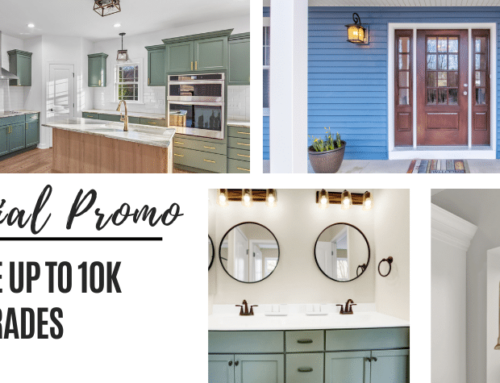Builders are like people with different personalities, strengths and weaknesses. Understanding the builder’s philosophy and building practices before you purchase a new home will give you the ultimate new home experience and may help you avoid a strained relationship later if the builder is not a fit for you.
Here are six things to consider when selecting a builder:
1. The Size of the Builder
Smaller builders typically build several homes a year. They can give personal service and be present on the job site to address changes you may want to make.Larger volume builders typically have a furnished model home and Design Center for you to tour. They normally have a number of homes under construction at one time with the foreman coordinating construction from their office and visiting job sites as scheduled.
2. Building Radius
You will need to confirm if the builder you are considering builds in the area where your land is located.Stick built construction requires delivery of materials and work force to the job site. It is not uncommon for a regional builder to serve a 60 + mile radius from their office but much beyond that you reach a point where it is not practical or feasible.
3. Construction Time
Have you sold your home and need to move in a certain time period or are you renting now and need to give notice you will not be renewing the lease? Construction time is a topic you will want to discuss with the builder. A six month build time from date of excavation for a stick-built home erected on the site is typical but construction time varies depending on the complexity and size of the house, changes made during construction, work to be done or coordinated by the owner, and time of the year with possible delays due to demand in Spring and weather conditions in the Winter. There are other factors that could affect construction times such as code inspectors and site work. Modular construction can be faster than stick-built homes erected on the site but you need to weigh the benefit of potentially saving a few months construction time versus personally viewing construction of your stick-built home as it is constructed on your lot.
Because of the variables, it is difficult for a builder to give an exact construction time but they should be able to give you an estimate that you can have confidence in.
4. Home Plans
Does the builder require you to purchase and provide a house plan? If the plan is purchased from a national home plan company, they may need to be altered to meet state code requirements. Has the builder constructed homes similar to the one you are considering? The larger production builders offer home designs that can be modified to your needs. Customizing one of these proven home designs will typically save cost versus a custom plan.
5. Experience and Reputation
How long has the builder been in business and what is their reputation? A new home for most people represents the largest purchase they will ever make in their lifetime. You will want to trust the construction of your home to a builder who has a proven consistent track record for quality construction and customer satisfaction over a long period of time. Lenders and past customers are a good source to confirm a builder’s reputation. You can request the builder provide a list of testimonies and reviews. The Better Business Bureau evaluates companies and should also be consulted.
6. After Construction
Knowing your builder will be there for you after the home is built and you move in is important. Do they have a formal written service program and for how long?
In addition to their own service program, some builders offer peace of mind through a third party multiple-year warranty such as Residential Warranty. This ensures two layers of protection with both the builder and the warranty company.











